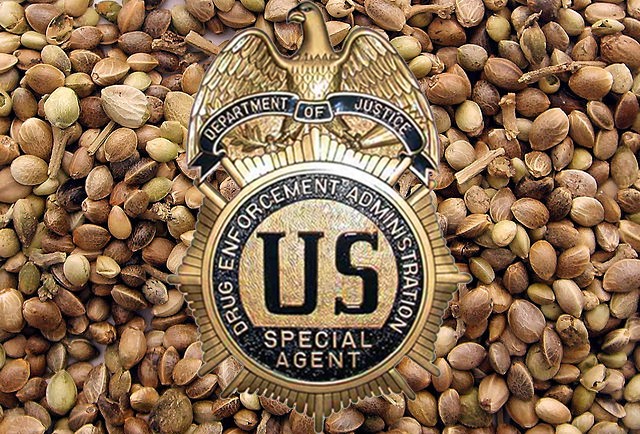WASHINGTON D.C. –The Drug Enforcement Agency (DEA) on May 22 issued an internal directive that apparently acknowledges some cannabis products are not currently prohibited under the Controlled Substances Act (CSA) and that specific parts of cannabis plants are not prohibited for use under current policy.
According to the directive, the DEA’s enforcement policy is consistent with a 2004 decision handed down by the U.S. Ninth Circuit Court of Appeals, in Hemp Industries Association v. DEA.
The directive stated:
“Products and materials that are made from the cannabis plant and which fall outside the CSA definition of marijuana (such as sterilized seeds, oil or cake made from the seeds, and mature stalks) are not controlled under the CSA. Such products may accordingly be sold and otherwise distributed throughout the United States without restriction under the CSA or its implementing regulations. The mere presence of cannabinoids is not itself dispositive as to whether a substance is within the scope of the CSA; the dispositive question is whether the substance falls within the CSA definition of marijuana.”
The directive also said that the policy directive did not change the DEA’s current policy toward cannabis extracts and resin.
Cannabis law firms reacted to the directive, which in effect, potentially clears the way through the dense legal grey area for CBD or hemp-based products, and could signal a boon to cannabis/hemp growers and product manufacturers.
Canna Law Blog™ refined the definition of parts of cannabis plants that the DEA has said are exempt for use in product manufacture. They include:
- Mature stalks
- Fiber produced from mature stalks
- Oil or cake made from seeds
- Seeds incapable of germination
The DEA directive also said that “any other compound, manufacture, salt, derivative, mixture, or preparation” created from named plant parts were also not prohibited, though Canna Law pointed out any extracted resin is still considered “marijuana” by the DEA and would be prohibited under the CSA.
The DEA directive went on to essentially say products produced from non-prohibited ingredients were okay for sale in the United States. Products containing THC, the psychoactive compound in cannabis, and products otherwise designated as marijuana by the DEA were still federally prohibited. Non-THC products, however, would not be prohibited. The directive did not directly address hemp or hemp-based products.
“Such products may accordingly be sold and otherwise distributed throughout the United States without restriction under the CSA or its implementing regulations. The mere presence of cannabinoids is not itself dispositive as to whether a substance is within the scope of the CSA; the dispositive question is whether the substance falls within the CSA definition of marijuana,” the directive said.
Law firm Lane & Powell’s The Pipeline Blog said, “… The logical and scientific inconsistency puts the DEA and purveyors of CBD goods in a precarious position: how will they determine which CBD products are subject to the CSA and will people really be prosecuted for trafficking a Schedule I controlled substance where the substance is chemically indistinguishable from one that is not prohibited by the CSA?
“We anticipate that at least one outcome will be buyers insisting on statements or warrantees from sellers, and buyer quality control due diligence, that their CBD products contain only excepted marihuana (sic) oil,” Pipeline blog authors Justin E. Hobson & Lewis M. Horowitz added.











